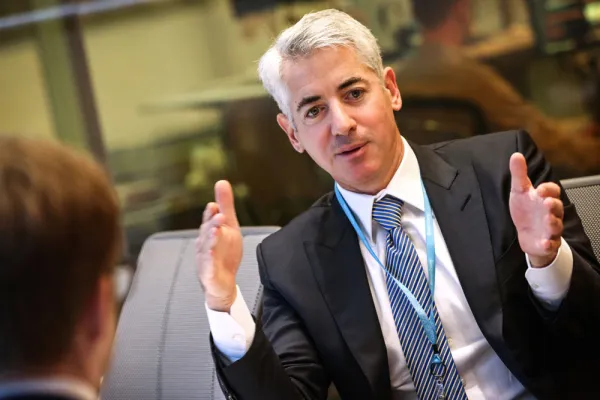This time of year, we in the U.S. are unfortunately reminded of a phrase written by Benjamin Franklin in a letter to French scientist Jean-Baptiste Le Roy in 1789: “Nothing is certain except death and taxes.” As taxpayers, we all know this well. Do many investors forget this, however, when examining hedge funds?
Consider the following true story. Last year I was hired by a wealthy couple to help vet investment managers and private banks. They had recently sold a business that had netted them approximately $100 million in aftertax cash and wanted to make sure they were making prudent long-term choices. One of the meetings we had was with a large trust bank, which hosted an elegant lunch. The firm brought in an impressive team that included the president of the trust division and the chief investment officer.
After the first course, the trust bank’s president summarized the firm’s capabilities. Particular emphasis was given to the strength of the alternatives and hedge fund selection team. He concluded by saying, “You’ve done well. We’re here to make sure your family continues to do well over generations by building you a prudently diversified portfolio that includes global equities, bonds and a world-class mix of alternative managers.”
Although the couple appreciated the presentation, neither fully understood the complex hedge fund strategies included in the proposal. When they questioned the necessity of these strategies, the CIO said, “It’s important that we broadly diversify your family assets into both traditional and alternative strategies such as hedge funds. As fiduciaries, it’s not prudent to invest in an endowment-style portfolio that doesn’t include hedge funds.”
Despite the persuasive presenters, and buoyed perhaps by the knowledge that they had built a successful business by always fully understanding strategies before executing them, the couple decided to keep it simple and not invest in hedge funds.
Were my clients right to keep to the simpler path? Initially, it might appear not.
The family had set up a Delaware dynasty trust. Their time horizon for investment and distribution of funds to beneficiaries was going to be measured not in years or decades but in generations. What does that sound like? Probably, an endowment.
If trusts for families falling into the ultra-high-net-worth bracket — having investable assets of at least $30 million — have characteristics that resemble endowments, shouldn’t more portfolios of ultra-high-net-worth clients look like Yale-style endowments?
Why Yale? In the investment world, Yale is known for having a top-performing endowment, the $22 billion Yale Investments Office, the investment style of which many other institutions try to replicate. Yale’s endowment is helmed by David Swensen, one of the most well-respected CIOs in the endowment world and beyond, an esteem based on his writings and his use at Yale of nontraditional investments such as hedge funds.
So, what’s the problem with using an endowment approach for ultra-high-net-worth families? I could write about fees or recent, less-than-favorable performance by some hedge funds, but how about taxes?
Yes, taxes. Regardless of your political leanings, Franklin was correct. Unlike endowments, individuals can’t avoid a yearly payment to the IRS on investment gains.
Who else offers a similarly strong caution about taxes? David Swensen.
Following the publication of Pioneering Portfolio Management, Swensen’s first book, in 2000, many ultra-high-net-worth advisers started promoting the endowment model he had helped to create. The ultra-high-net-worth investment world eagerly embraced this new, apparently more sophisticated approach but seemingly was — and more than 15 years later still is — forgetting the fact that Swensen’s book was designed for tax-exempt investors.
As Swensen wrote in his second book, published in 2005, Unconventional Success, this one for taxable investors: “The management of taxable ... assets without considering the consequences of trading activity represents a ... little considered scandal. A serious fiduciary with responsibility for taxable assets recognizes that only extraordinary circumstances justify deviation from a simple strategy.”
Earlier in this article, I asked the following questions:
• Do investors often forget taxes, to their detriment, when considering hedge funds?
• Were my ultra-high-net-worth clients right to keep to the simpler path and say no to hedge funds?
Based on the evidence, I answer “yes” and “yes.”
In light of the unavoidable tax drag that is associated with hedge funds, all investors might be well served to follow the advice of a Ben Franklin–type figure of investing: Warren Buffett.
What does Buffett recommend, even for his family? Keep it simple, with low-cost and tax-efficient index funds. Both Buffett and Swensen have repeatedly discussed the evidence in favor of index investing and consistently recommended it for individual investors.
Preston McSwain is a managing partner and founder of Fiduciary Wealth Partners, a registered investment adviser in Boston.
Get more on registered investment advisers.






